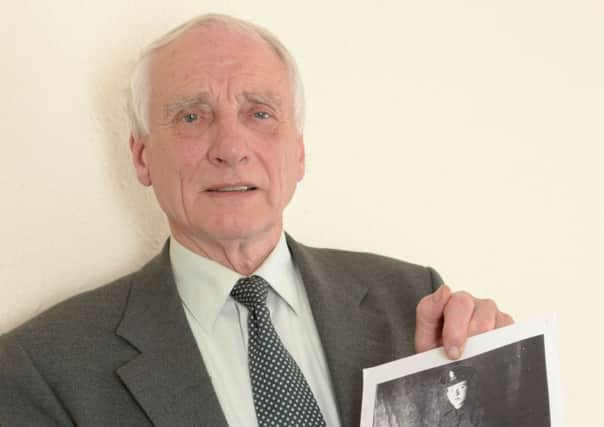Larne gun-run youth who yodelled in the trenches


David McNeill’s father John was a member of the UVF on the night that the SS Clyde Valley landed in Larne laden with weapons and ammunition to combat the threat of Home Rule.
While the boat was being unloaded, John was given the job of checking cars to make sure only those carrying passes could access the harbour.
Advertisement
Hide AdAdvertisement
Hide AdHis son David told The Times: “My father was one of the volunteers on duty in the streets. He lived in Fleet Street and was very familiar with the local area. He had only turned 16 years old and was given the job of directing traffic. In the town as a whole there were hundreds of people involved.
“I was at a house near Kilwaughter a few years ago when they knocked down the walls and came across guns and a bayonet.”
John also saw action during the First and Second World Wars. Joining the 12th battalion Royal Irish Rifles’ Ulster Division not long after the gun running, he witnessed horrific conditions.
On March 21 1918, John fell victim to a German offensive and was captured and transported to a POW camp. However, even in difficult conditions, his son says that the Northern Irish spirit could not be extinguished. He recalled: “My father was a great yodeller and a local man who was in the war with him said that at night you could hear Neiller yodelling over the trenches.
Advertisement
Hide AdAdvertisement
Hide Ad“Then, when he was taken to a POW camp he was being escorted to a collection area and he heard someone shout: ‘They’ve got you now Neiller!’ It was a man from Larne whose grandson still has a barber’s shop on the Old Glenarm Road.”
John spent the last seven months of the war in the German POW camp, and during this time his mother received a telegram to say that he was missing, presumed dead. The telegram arrived in April, and a few months later John followed with a surprise visit home. His son recalled: “He got off the boat at Larne Harbour and one of their neighbours saw him and told my granny Eliza that he was coming up the street!” She replied: “Don’t be silly, John’s dead.”
In the 1920s, John joined the A Specials and volunteered for the RAF during the Second World War. His son revealed: “He had had enough of the trenches, so he decided to join the Air Force. He was a man who really stood up for his principles. Considering what soldiers went through in the First World War, they were all heroes. My father was a man who didn’t care who you were or where you came from: everyone was a human being.”